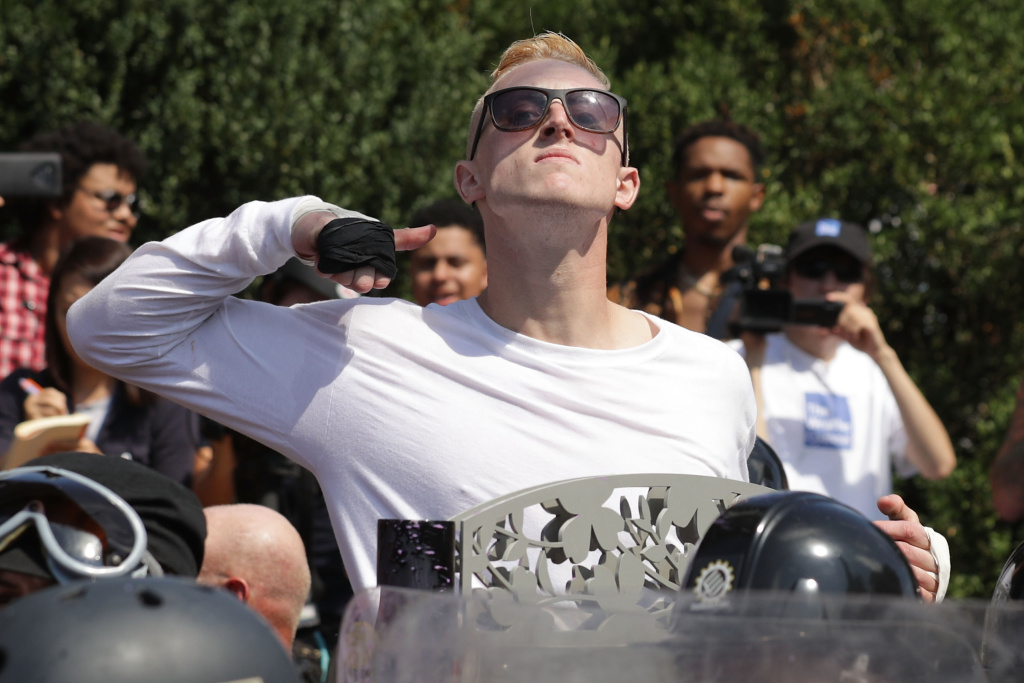The Effect of White Social Prejudice on Support for American Democracy

- A man marching with white nationalists makes a slashing motion across his throat toward counter-protester in Charlottesville's white pride rally. (Chip Somodevilla/Getty Images)
Abstract
Co-authored with Nicholas T. Davis. Published at Journal of Race, Ethnicity, and Politics.
Social prejudice constitutes an unwillingness to associate with individuals whose cultural or racial background differs from one’s own group. Such prejudice is a particularly thorny problem in the context of democracy, which requires citizens to minimally respect such differences. In this manuscript, we assess the relationships between these attitudes and support for democratic institutions. Using World Values Survey data from 1995 to 2011, we find that prejudice toward cultural, ethnic, or racial ‘others’ reduces the value that white Americans assign to democracy. We also find white Americans who exhibit these attitudes are more likely to dismiss the value of separation of powers and are more likely to support army rule. These findings imply that exclusionary rhetoric targeted toward nonwhite groups is accompanied by lower baseline support for democracy. We close with a discussion of how our analyses inform the study of Americans’ attitudes toward democracy.
Elsewhere
- Boing Boing: White Americans abandoned democracy and embraced authoritarianism when they realized brown people would soon outvote them
- Maclean’s: If you vote for a reckless politician, you can’t claim to be a good person
- NBC News: The Trump effect: New study connects white American intolerance and support for authoritarianism
- New York Times: President Trump Is a Very Political Animal
- ThinkProgress: Trump is awakening and emboldening Americans with anti-democratic ideals, research shows
- Outgroup Intolerance and Support for Democracy: An Analysis of White Americans in the World Values Survey Data